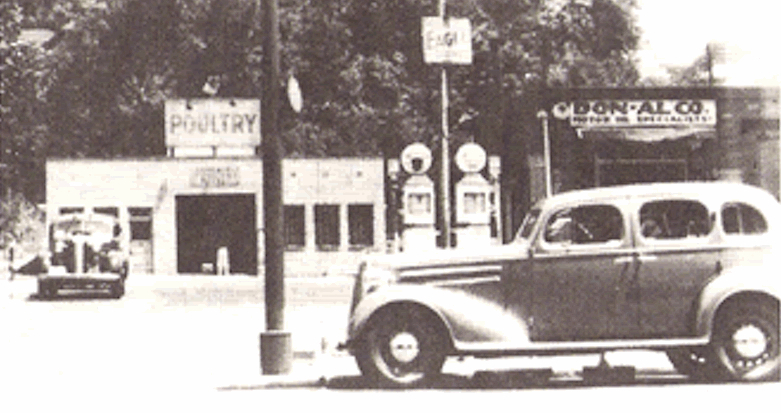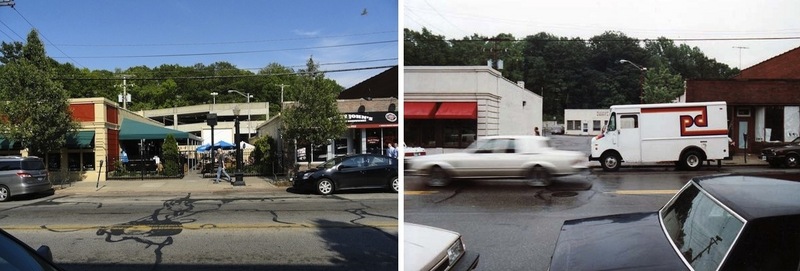Coventry Kosher Poultry

As the well-dressed young adults sit on the patio of Panini's Bar and Grill, sipping their drinks and watching the game on TV, few probably realize that their trendy warm-weather hangout was once the site of a slaughterhouse. From 1946 until 1992, the Coventry Poultry Market sat on the eastern edge of what today is Panini's patio, providing freshly-killed kosher chickens to the neighborhood's Jewish residents.
Jews began moving to the Coventry area in the 1920s, leaving neighborhoods on the east side of Cleveland for apartments and small homes in the suburbs. Their presence led to the opening of a number of kosher delis, bakeries, and meat markets (including a few poultry slaughterhouses) on Coventry Road.
Benny Simon opened the Coventry Poultry Market in 1946. Since it was a kosher market, a "shochet" (ritual slaughterer) handled the killing duties, using a special, sharp knife to quickly sever the chicken's neck arteries, sparing it (supposedly) from undue pain. Kosher chicken is also carefully drained of all blood, since the Old Testament states that "blood is the life; and thou shalt not eat the life with the flesh." The shochet must also rigorously inspect each chicken for disease or impurities and say specific prayers at the beginning and end of each day.
In the 1960s, the "counter culture" came to Coventry, and many Jews left the neighborhood for suburban areas further east. One by one, the Jewish businesses on Coventry Road closed up shop. Younger Jews seemed less concerned with the strict Kosher practices of their elders, and it was more modern and convenient to buy frozen, pre-packaged chicken at the nearby Pick-N-Pay supermarket. The Coventry Kosher Market, however, remained -- the last remnant of a largely bygone generation set amidst "jazzy window displays, 10-speed bicycles, and patrician antique stores," as a 1982 Plain Dealer article described it. Nonetheless, the market still served a diverse clientele, including elderly Jews who had not moved away, new Russian immigrants, and Muslims. A number of Asians who used chicken blood in their cooking also frequented the market, as did some Case Western Reserve University students who picked up chicken heads for research. Therefore, even as the community changed, there still seemed to be a use for the Coventry Poultry Market.
In 1992, however, the city of Cleveland Heights had the market torn down. The market simply did not fit in with Coventry's new image as a family-friendly, middle-class shopping and dining destination. Demolition of the market cleared the way for a municipal parking garage.
Audio
Images







